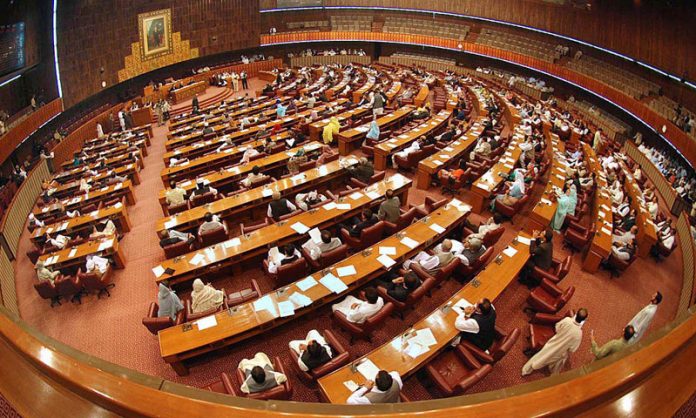Pakistan’s Proposed Constitutional Amendments Spark Controversy
The latest constitutional amendments proposed by Pakistan’s government have stirred significant debate, with allegations from opposition parties that they could undermine judicial independence. Prime Minister Shehbaz Sharif’s administration has faced resistance from opposition leaders, particularly from jailed former Prime Minister Imran Khan’s party, the Pakistan Tehreek-e-Insaf (PTI).
Key Amendments in Focus
The government has proposed over 50 amendments, many focused on restructuring the judiciary. One of the most controversial proposals includes the creation of a new Federal Constitutional Court. This court would exclusively handle constitutional matters, reducing the powers of the existing Supreme Court.
Other key proposals include:
- Judges’ Retirement Age: The retirement age for Constitutional Court judges would be raised to 68, compared to 65 for other judges.
- Limited Terms for Judges: Constitutional Court judges would serve a term of no more than three years.
- Appointment Process: The President, based on the Prime Minister’s recommendations, would appoint the chief justice of the new Constitutional Court.
- Legislators’ Voting Freedom: Another amendment would allow legislators to vote against their party line without their vote being disregarded, overturning a Supreme Court ruling from 2022.
Opposition’s Concerns
The opposition, led by PTI, has strongly opposed these amendments, calling them unconstitutional. They argue that these changes are being rushed through without proper consultation and could weaken judicial independence by giving more power to the executive branch.
PTI claims that these amendments are politically motivated, particularly aimed at limiting the influence of Imran Khan and his party. They also fear that the new Constitutional Court could be used to ban the PTI or influence decisions regarding Khan’s legal battles.
Government’s Struggle for Parliamentary Support
Passing constitutional amendments in Pakistan requires a two-thirds majority in both houses of parliament. Despite efforts, Sharif’s government has been unable to secure the necessary support, falling just short in both the National Assembly and the Senate.
While the government remains confident that they will gather enough votes soon, the delay has cast doubt on whether the amendments will move forward.
Expert Opinions
Political analysts warn that these amendments could shift the balance of power between the judiciary and the executive. Some view the timing of the amendments—just before the retirement of Chief Justice Qazi Faez Isa—as an attempt to influence future judicial appointments and limit the Supreme Court’s powers.
Additionally, concerns have been raised that the amendments would shield military officers from legal challenges in matters of national security, further empowering Pakistan’s already influential military.
Conclusion
The proposed constitutional amendments have deepened the political divide in Pakistan, with critics accusing the government of trying to consolidate power over the judiciary. As the situation unfolds, the balance between the judiciary and the executive, and the future of political parties like the PTI, remains uncertain.















